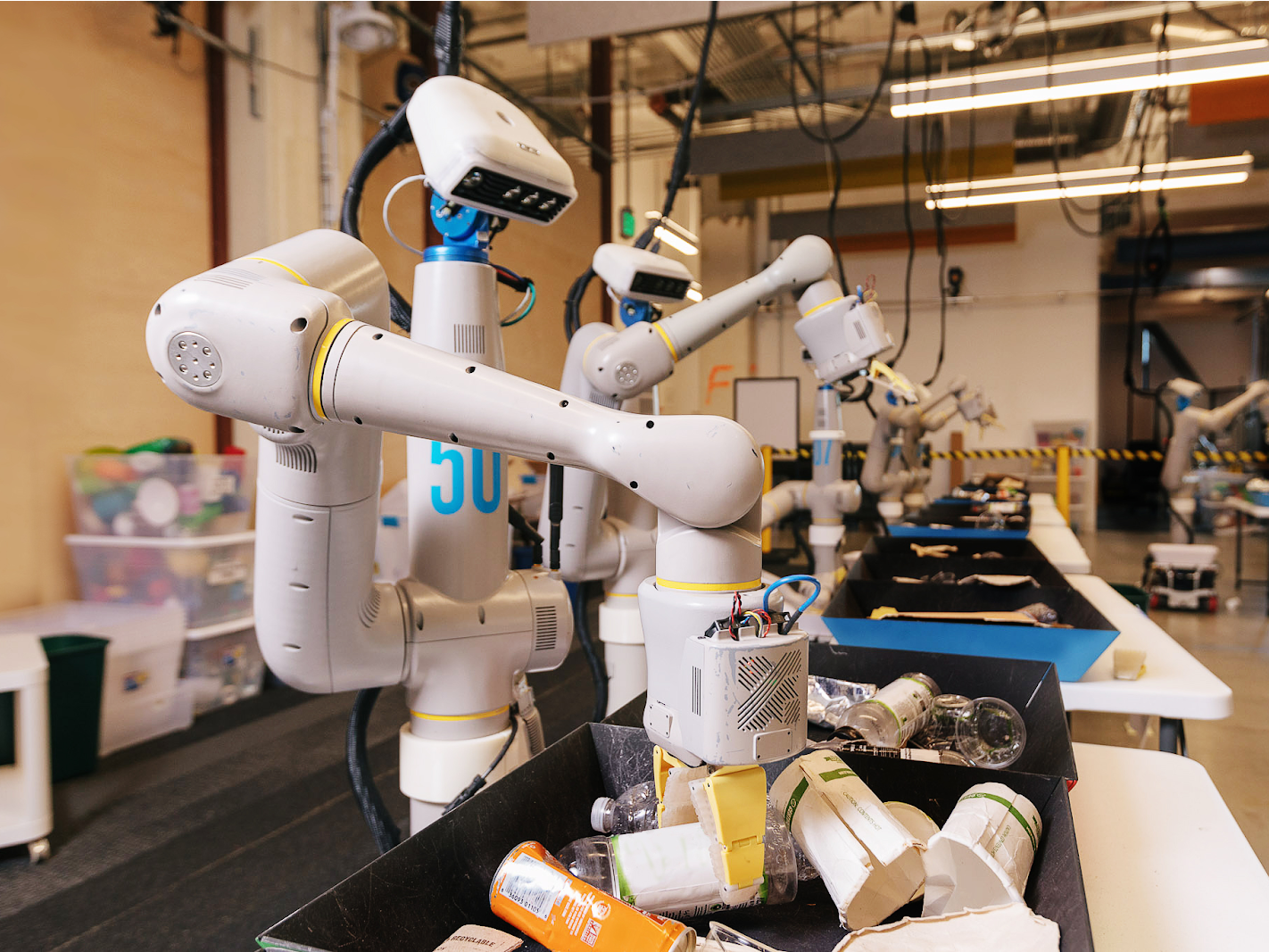- Alphabet’s X group, the R&D lab formerly known as Google X, introduced the Everyday Robot Project on Thursday.
- The project comes out of Alphabet’s string of robotics acquisitions several years ago, which had been put on hold.
- The new project is focused on building robots capable of useful, everyday tasks, like sorting recycling.
- Alphabet’s X group said it will focus on AI-enabled robots that can be learn tasks on their own, rather than being programmed to do specific things.
- Visit Business Insider’s homepage for more stories.
Alphabet, the parent company of Google, is getting back into robotics after a first attempt several years ago fizzled. But this time the company wants to create robots with minds of their own.
The company’s R&D lab, known as X, announced the Everyday Robot Project on Thursday, describing its efforts to build a new breed of robots infused with artificial intelligence. The goal is a robot that can be “taught” how do to something, rather than needing to be programmed by humans ahead of time to perform a chore.
“It’s possible for robots to learn how to perform new tasks in the real world just through practice, rather than having engineers ‘hand code’ every new task, exception, or improvement,” Hans Peter Brondmo, Alphabet X’s “Chief Robot Whisperer”, wrote in a blog post announcing the news Thursday.
The robots can learn by observing human demonstrations and by “shared experiences,” the company said.
The X group said the robots were still years away from being available. But it described a vision of consumer robots capable of operating autonomously in homes and offices.
"This team's moonshot is to see if it's possible to make robots as helpful to people in the physical world as computers are now in the virtual world," the company said.
Alphabet has been testing the robots with simple tasks, like sorting garbage into landfill, compost, and recycling piles. Robots learned how to perform these tasks with a combination of simulation, reinforcement, and collaborative learning, according to Google. The company says that its success at this task proves that robots can learn new tasks in the real world through practice.

"Our next challenge is to see if we can take what the robot learned in this task and apply that learning to another task without rebuilding the robot or writing a ton of code from scratch. This could prove to be impossible, but we'll give it a shot," Brondmo wrote.
This isn't the first time Google has bet on robotics as the future of tech. In 2013, Google bought several top robotics companies, including Boston Dynamics, but the project was scrapped after two years and many of the acquired companies have been spun off. Now, Google seems to be picking up where it left off in a quest to build household robots.
This project could eventually be in direct competition with Amazon's consumer robot. The company is reportedly working on a robot codenamed "Vesta" that would act as a mobile version of the Alexa voice assistant.

